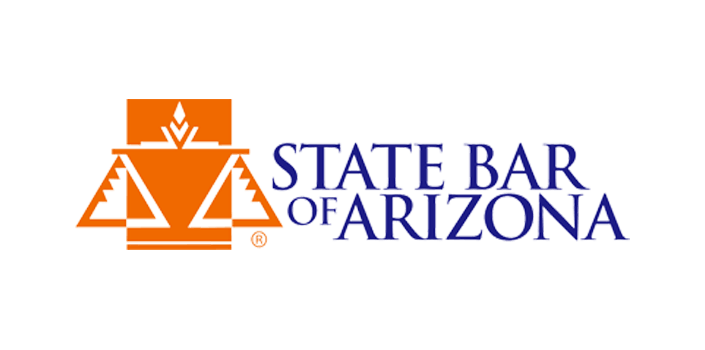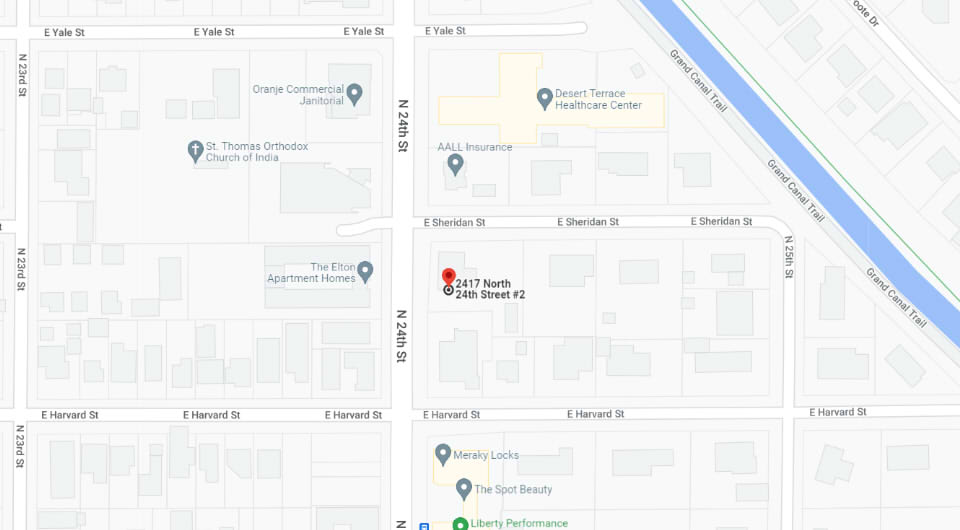Gastric bypass is a major surgery that effectively makes your stomach smaller, allowing a portion of food to bypass your stomach and go directly to the small intestine. Deciding to undergo surgery is a major decision for your well-being and health, and you need to trust your surgeon. Nevertheless, when the physician fails to exercise the professional diligence and caution expected, negligence can result in injuries, complications, or even death. The consequences can be far-reaching if you or a loved one has sustained injuries after the surgical procedure. The passionate legal team at the Phoenix Personal Injury Attorney Law Firm can assist you in fighting for the justice you deserve. We can listen to you, collect and analyze case facts to create a sound legal strategy for the case, identify the defendant, and ensure you receive satisfactory compensation.
What is a Gastric Bypass?
Gastric bypass is a weight loss surgical procedure designed to help obese individuals. Typically, healthcare providers recommend gastric bypass if other weight loss techniques have failed and obesity poses a greater risk to your health than surgery.
The operation works by modifying the digestive system, usually the stomach and sometimes the small intestines, to regulate the number of calories the patient eats and absorbs. It also reduces the hunger signals traveling from the digestive system to the brain.
The surgery is performed to help you lose excess weight and lower the risk of potentially life-threatening weight-related health conditions like:
- Heart disease.
- Gastroesophageal reflux disease.
- High cholesterol.
- Hypertension.
- Cancer.
- Stroke.
- Infertility.
- Type 2 diabetes.
- Obstructive sleep apnea.
- Kidney disease.
- High blood sugar.
The following are various kinds of bariatric surgical procedures:
- Gastric sleeve/sleeve gastrectomy — Gastric sleeve involves removing a huge portion of the stomach and leaving behind a tiny, tubular part like a sleeve. It naturally lowers the quantity of food you eat, regulating your blood sugar, reducing appetite, and stabilizing your metabolism.
- Roux-en-Y or gastric bypass — Roux-en-Y means in the form of the letter “Y.” With gastric bypass, the small intestine makes this form. Your surgeon will create a tiny pouch at your stomach’s top and separate it from the lower part using surgical staples. Next, they will divide the small intestine and bring the new segment up, connecting your stomach pouch. Then food will flow via the stomach and intestine segment, bypassing the rest. It limits how much the stomach holds and how much nutrients your small intestines absorb.
- Gastric reduction duodenal switch — The procedure is identical to Roux-en-Y. It removes approximately 75% of your small intestine, significantly lowering hunger hormones and limiting how much nutrients the small intestines can absorb. While the procedure is the most effective operation for enhancing metabolic syndromes and weight loss, it can make it challenging for the body to absorb adequate nutrients to remain healthy.
- Adjustable gastric band surgery involves placing a band-like silicone device around the stomach’s top, effectively trying off the remainder and leaving a tiny pouch and narrow channel into the stomach’s lower part. It causes the patient to feel full sooner, while it takes longer for the food they eat to move to other parts of their digestive system. Unlike other procedures, the surgery permits the greatest absorption of nutrients, reducing the risk of nutritional deficiencies.
Risks and Complications of Gastric Bypass Surgery
As with all major surgeries, gastric bypass poses potential health risks in the long and short term.
Risks related to the surgery include the following:
- Infection.
- Excessive bleeding.
- Breathing challenges.
- Blood clots.
- Adverse reactions to anesthesia.
- Leaks in the gastrointestinal system.
Longer-term risks and complications of surgery vary depending on your surgical procedure. They can include:
- Dumping syndrome, which causes flushing, nausea, vomiting, diarrhea, lightheadedness.
- Hernias.
- Malnutrition.
- Vomiting.
- Ulcers.
- Acid reflux.
- Hypoglycemia (low blood sugar).
- Bowel obstructions.
- Gallstones.
- Need for a revision surgical procedure.
- Death, although it is rare.
When Does Gastric Bypass Malpractice Happen?
Without a doubt, there are risks with all surgeries. That means numerous injuries and death after gastric bypass surgery do not involve medical malpractice. Most seasoned and qualified physicians perform the procedures well and without complications.
However, the surgical procedure costs at least $20,000. This lures medical doctors who should not be performing the surgery because they are unskilled or because the patient does not qualify for the procedure.
Most adverse surgical events are preventable and can be significantly attributed to a combination of system and human failures. Common factors that contribute to gastric bypass surgical errors include the following:
- Lack of technical competence or knowledge.
- Overconfident or distraction among surgeons.
- Fatigue.
- Surgeon inexperience.
- Failure to establish clear lines of responsibility.
- Inadequate staffing.
- Inadequate hospital systems.
- Malfunction of technology or equipment.
- Failure to comply with patient safety protocols.
- Poor communication among medics during the gastric bypass procedure.
- Lack of appropriate supervision of trainees.
Common types of medical malpractice include:
Operating the Wrong Patient
Not everyone qualifies for gastric bypass. To be eligible for the surgical procedure, you should meet the following criteria:
- Body weight higher than 45 kg or 100 pounds above the ideal weight.
- Body mass index (BMI) higher than 40 with medical complications linked to obesity, including type 2 diabetes, gallbladder disease, sleep apnea, and hypertension.
- A documented history of weight management and weight loss attempts with supervised exercise programs and diets.
- No indication of active alcoholism, drug addiction, or a significant psychiatric disorder.
Your doctor should also evaluate your general health and age to determine whether gastric bypass is right for you.
Medical malpractice can happen if your physician fails to ensure you meet these criteria. Some diseases are too severe for an individual to undergo the procedure, making the patient ineligible.
Failing to Diagnose Pulmonary Embolism
Typically, a pulmonary embolism happens when a blood clot in the leg breaks off and travels to the lungs. While the phenomenon can occur anytime, obese patients are more vulnerable, especially during and after the surgical procedure.
Most patients experience chest pain and shortness of breath. However, it can sometimes result in sudden death.
Conditions that can indicate you are more likely to suffer from a pulmonary embolism include:
- BMI greater than 60.
- Obstructive sleep apnea.
- Previous history of pulmonary embolism.
- Smoking.
- Family history of blood clots.
- Chronic lower extremity edema.
- Prolonged immobility.
On top of identifying a high-risk patient, there are other preventative measures a physician should take to lower the risk of the condition, including:
- Encouraging the patient to walk as soon as possible following the operation.
- Using stockings to keep blood flowing in the vein.
- Administering blood thinner therapy.
Failure to Timely Diagnose Perforation or Leakage of Bowel Connections Following Anastomosis
The connection is known as anastomosis when a doctor fastens bowel to stomach or bowel to bowel. If it fails to form a seal, fluid leaks from the bowel (anastomotic leak), a potentially fatal complication.
Fluid from your gastrointestinal tract contains bacteria and can result in abscess formation and infections. Common signs of an anastomotic leak include hypertension, fever, rigors, severe abdominal pain, and tachycardia. If not diagnosed and treated early, the leak can become deadly.
Failure to Offer Appropriate Nutritional Support After the Procedure
Although gastric bypass surgery can boost the quality of life and save a life, it can also cause nutritional deficiencies, causing severe health complications like neurological conditions. The conditions are due to your body’s inability to absorb nutrients after surgery and reduced food intake. Moreover, it can stem from the patient taking inadequate nutritional supplements following the surgery.
Conditions your doctor should observe include the following:
- Polyneuropathy or peripheral — It is nerve damage caused by vitamin B6, B1, and E deficiencies. The condition is characterized by tingling or numbness in the hands and feet and burning pain. You risk suffering polyneuropathy if your surgeon bypasses the absorption site in the jejunum or insufficient nutritional supplements following the operation.
- Wernicke’s encephalopathy/Korsakoff syndrome — The weight-loss surgical procedure can also result in a degenerative brain disorder caused by a vitamin B1 deficiency. Symptoms of Korsakoff syndrome include loss of muscle coordination, vision loss, short-term memory, and confusion. If not treated, the condition can worsen and become fatal.
- Other nutritional deficiencies — On top of thiamine deficiencies, you risk developing deficiencies in calcium, vitamin D, riboflavin, folate, copper, and vitamins B12, K, E, A, and D which can cause irreversible nerve injuries and memory loss. Your doctor should carefully monitor you postoperatively for signs of malabsorption and malnutrition.
Leaving Surgical Equipment Behind
Many pieces of equipment are used for surgery. If any surgical instrument is left inside a patient, it is often found during a follow-up x-ray. However, the retained tool is sometimes not discovered until the person suffers an illness or injury days after the operation.
A retained surgical instrument can:
- Cause internal injuries — When a sharp object like a knife blade or safety pin is left inside you, you can suffer injuries to tissues or an organ. It can result in fistula, obstructions, and internal bleeding.
- Cause infections — When a porous item like a sponge is left behind, bacteria can build up in the item, causing infections. Even with other equipment, you risk an infection if the item was not well sterilized before your operation.
- You could require another surgical procedure to remove the retained surgical instrument. It could mean more recovery time, additional medical bills, and the trauma of undergoing another surgery.
Other forms of gastric bypass medical malpractice include:
- The doctor prescribed the wrong medication.
- The physician ignored your complaints and thus neglected to treat your post-surgery harm.
Proving Medical Malpractice
In Arizona, medical malpractice claims are based on the legal theory of negligence. You should prove the following elements by a preponderance of the evidence:
The Defendant Owed You a Duty of Care
You should prove that a doctor-patient relationship existed between you and the doctor when the negligent conduct happened.
Verifying the duty of care is straightforward. The relationship is formed in numerous ways, including:
- You decided to consult the doctor.
- The physician treated you.
- A medical facility assigned a doctor to you.
The Surgeon Breached Their Duty of Care
Surgeons should exercise a specific degree of care, expertise, and skill. When you file a medical malpractice claim, you prove the breach by arguing that the doctor did not exercise the level of skill and care that a rational and prudent doctor would under similar circumstances. You can achieve this by presenting testimony from another medical provider who shares the same training, specialties, experience, certification, and skills as the defendant.
Please note that poor medical results do not always mean the doctor breached the duty of care, hence the medical malpractice. The physician should have deviated from their required standard of care, resulting in your injury.
The Breach was the Cause-in-fact and Proximate Cause of Your Injuries
There is cause-in-fact if your surgeon’s conduct helped cause the results, and that outcome would not have occurred without the doctor’s negligent behavior. In other words, the doctor’s negligence significantly affected the resulting injury.
You should also prove proximate causation. You should give facts from which the negligent act and a causal relationship between your injuries and the physician’s act could be reasonably conditional. Your injuries and harm are foreseeable consequences of the defendant’s negligence.
You Suffered Damages
Finally, you should prove that you suffered some loss or damage due to the physician’s negligence. There is no limit on how much you can recover as damages. The amount and type of damages you can recover depend on your prognosis for recovery and the severity of your injury.
Damages awarded are either economic damages or non-economic damages.
Generally, economic damages are tangible losses with a monetary value. They include both present and future expenses linked to your injury. The jury can estimate your future damages through a physician’s recommendation for your ongoing treatment or expert witness testimony.
These damages can include:
- Medical expenses (physician visits, emergency room visits, rehabilitation cost, medical equipment, medication, and cost of adaptive devices).
- Lost income.
- Lost earning capacity.
Non-economic damages do not have a monetary value, and juries award them according to what is fair and reasonable on a case-by-case basis. The damages are quantified by expert witness testimony, the severity of the injuries, and how the injuries have affected the victim’s life.
Non-economic damages include the following:
- Loss of consortium.
- Mental and emotional anguish.
- Pain and suffering.
- Loss of enjoyment of life.
- Disfigurement or permanent loss or use of a body part.
You could be awarded punitive damages if the medical facility or expert was grossly reckless or negligent when offering your care. The damages are designed to punish the physician and deter future negligence by other physicians.
Statute of Limitations (SOL)
The statute of limitations is the set deadline for bringing a lawsuit. Arizona’s statute of limitation for filing your medical malpractice is two (2) years after the cause of action accumulates. Typically, it means the facts vindicating the lawsuit occurred when you sustained injuries due to your healthcare provider’s medical negligence.
Nevertheless, courts use the “discovery rule” in all medical malpractice cases. Per the discovery rule, the SOL starts when you were aware or ought to have known that your injuries are due to medical negligence.
It is not always apparent when an individual experiencing harm following gastric bypass should be aware that their physician’s negligence caused the injury. It could occur immediately if you experience unexpected negative outcomes following the treatment.
Therefore, if you bring your claim after the SOL has passed after undergoing gastric bypass, the defendant could request the jury dismiss the case. In this case, the jury or judge should closely analyze the case facts and decide whether you filed your lawsuit late. To prevent your case's dismissal, please consult an attorney.
Sometimes the SOL for bringing a lawsuit can be tolled under the following circumstances:
- The alleged victim is below 18.
- The plaintiff is not mentally capable of bringing a medical malpractice lawsuit.
- The defendant's medical doctor is not in Arizona.
Medical Malpractice Lawsuit Filing Requirement Concerning Medical Expert Opinions
When filing your medical malpractice claim, you should present a certification indicating whether you need expert medical testimony to verify the defendant’s negligence.
Suppose your certification states the expert's testimony will come in handy. In that case, you and your personal injury attorney should submit a preliminary affidavit from a medical expert witness with the expert’s opinions on the defendant physician’s conduct, omissions, or mistakes that broke the standard of care and whether the actions or inaction caused the injuries and damages. You should file and serve the defendant with the affidavit within thirty days after the defendant files a response to your complaint.
If your certification claims that you do not require expert testimony, the defendant can request that the jury ask you to present an expert affidavit before the lawsuit proceeds. Then the jury will decide whether the affidavit is essential. If so, the jury will issue this order.
The jury will dismiss your claim “without prejudice” if you fail to file your expert opinion affidavit. In this case, you should restart the medical malpractice lawsuit filing process, provided the statute of limitations has run out.
Find an Aggressive Medical Malpractice Attorney Near Me
Medical practitioners must educate patients and their families on gastric bypass and what to expect with the procedure. Your surgeon should also recognize complications early and have attention-to-detail skills. They should take your complaints seriously and monitor your recovery. If this fails to happen and a loved one suffers an injury or dies after the weight loss surgery, you are entitled to seek compensation. The qualified legal team at the Phoenix Personal Injury Attorney Law Firm is acquainted with Arizona laws and knows how to increase the possibility of winning a fair compensation amount. We offer free case reviews to examine the facts of the case and identify effective options. Please put our expertise and knowledge to work by contacting our office at 602-641-9589.










